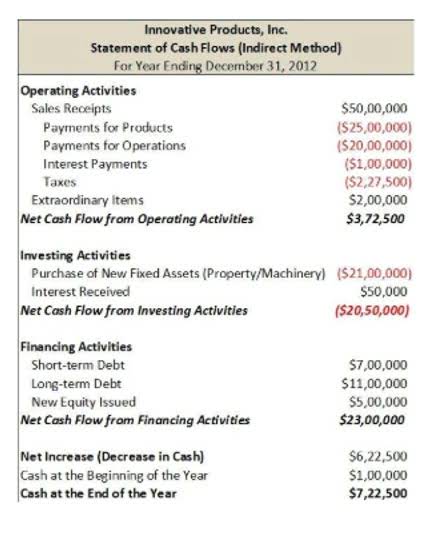Bookkeeping
What Is an Outstanding Check? Everything You Need to Know Explained Simply

The recipient is awaiting the receipt of funds that have been promised through the check. You’ll want to take all reasonable steps to cash or deposit outstanding checks. If you wait too long, the check can go stale, and no longer be considered valid. If it has been more than six months, contact the issuer to resolve the matter.
What Is an Outstanding Check? Outstanding Checks 101
An outstanding check refers to a check that has already been issued to the recipient. With this in mind, it can take as long as six months to get an outstanding check withdrawn from your account. This is because most banks will cash checks up to six months after they have been cashed.
- Most banks will continue to honor checks for the full 180 days, but that isn’t guaranteed.
- Not all banks provide check certification services — cashier’s checks and money orders are more common.
- Furthermore, if the payor’s account lacks sufficient funds, the check does not clear.
- Typically, funds from a deposited cashier’s check must be available the next business day.
- Keeping track of multiple uncashed checks over a long period of time makes it easier to accidentally spend the money that was set aside for a check and incur overdraft fees.
Ways to Avoid Outstanding Checks?
You can also commit to growing your financial literacy https://www.bookstime.com/ by learning about more topics around bank accounts and payment. PNC has many useful articles to help you make the most of your money. To completely avoid the issue, you could choose not to write checks. Instead, electronic cash payment methods, such as Zelle®, take the money out of your account faster. By not trusting the payee to take action, you remove the possibility that they will forget or put off cashing or depositing the check. Banks set their own policies for how long they consider a check valid.
AccountingTools
You are now leaving the SoFi website and entering a third-party website. SoFi has no control over the content, products or services offered nor the security or privacy of information transmitted to others via their website. We recommend that you review the privacy policy of the site you are entering. SoFi does not guarantee or endorse the products, information or recommendations provided in any third party website. + Plus, detailed guides to maximizing the value you get from your new US bank account.

Lastly, you can contact the recipient of the check and ask them to confirm whether they have deposited or cashed the check. An outstanding check refers to a check that has not yet been deposited or cashed by the recipient. Businesses dealing in goods trade involve the transportation of goods.
- Checks are simple financial tools that depend on both the payor and payee to take action to complete the payment.
- She debits the outstanding checks account and credits the cash account by $800 to reconcile her book balance with the actual bank balance.
- This presents a thorny situation—two checks might be circulating for a single payment.
- Remember, staying informed and staying on top of your financial transactions is key to maintaining a smooth financial journey.
- As such, it’s important to track your true available balance to avoid spending the money earmarked for the check and possibly overdrawing your account.
What Is an Outstanding Check? Everything You Need to Know Explained Simply

It’s important to keep enough money in your account to cover all the outstanding checks at all times. In the U.S., outstanding checks are considered to be unclaimed property and the amounts must be turned over to the company’s respective state after several years. An outstanding check is a check that a company has issued and recorded in its general ledger accounts, but the check has not yet cleared the bank account on which it is drawn. This means that the bank balance will be greater than the company’s true check is outstanding means amount of cash.
- An outstanding check is a check payment that has been recorded by the issuing entity, but which has not yet cleared its bank account as a deduction from its cash balance.
- Qualifying accounts can even access their paycheck up to two days early.
- Unaccounted-for outstanding checks can disrupt the delicate balance of incoming and outgoing funds.
- You’ll want to take all reasonable steps to cash or deposit outstanding checks.
- One of the potential consequences of having outstanding checks is the imposition of overdraft fees.
- Instead, the amount for which the check is written is a substitute for physical currency of the same amount.
A new check would have to be written or another method of payment could be used. An outstanding check can also mean that a check was deposited at a bank but is still going through the process of clearing. This means it is en route to becoming available funds in the payee’s bank account, but it’s just not quite there yet. The main difference between outstanding checks and outstanding deposits is that a check takes money from your bank account while a deposit puts money into your bank account.

A check is a financial instrument that authorizes a bank https://x.com/BooksTimeInc to transfer funds from the payor’s account to the payee’s account. When the payee deposits the check at a bank, it requests the funds from the payor’s bank, which, in turn, withdraws the amount from the payor’s account and transfers it to the payee’s bank. When the bank receives the full amount requested, it deposits it into the payee’s account. Another useful practice is to write “outstanding” on the memo line of the check when you write it so you can easily track every check you write. Note the check number, the amount, who it’s written out to, and what it’s for.
Example of an Outstanding Check in the Bank Reconciliation

If the sticking point is that you don’t have an account into which you can deposit the check, you can easily open a checking account. An outstanding check is a check that has been issued by the payer but has yet to be cashed or deposited by the payee. These checks help to reflect financial transactions in accounting records accurately. To reconcile outstanding checks with your bank statement, compare the checks issued but not yet cleared with the information provided on the statement, ensuring that both records align.
